Renowned program builder Lon Kruger laid the foundation for greatness at every stop
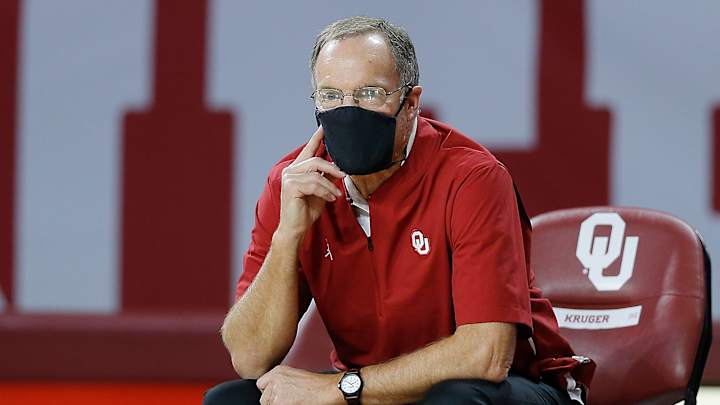
Silver Lake is an idyllic Kansas town along U.S. 24 on the outskirts of Topeka with a population of about 1,395.
A quaint community, Silver Lake’s official website “boasts” every business residing in the city limits, including a Chinese restaurant, a laundromat and a barber shop.
Noticeably missing however is perhaps the town's most famous son, and a legendary college basketball coach who transformed nearly every program he touched, Lon Kruger.
On Friday, Kruger was joined by University of Oklahoma President Joseph Harroz and OU Vice President of Intercollegiate Athletic Programs and Athletic Director Joe Castiglione for his retirement press conference, conducted via Zoom.
“It’s often said, being in sports, whether it’s any sport, whatever it is that we do that is just literally what we do,” Castiglione said. “With Coach Kruger, you can see that every singe day. Every day he brought it, and he never brought it in a way that was about him. It was always humble. It was always behind the scenes. He never looked for credit. He did things when people weren’t looking that were transformational.
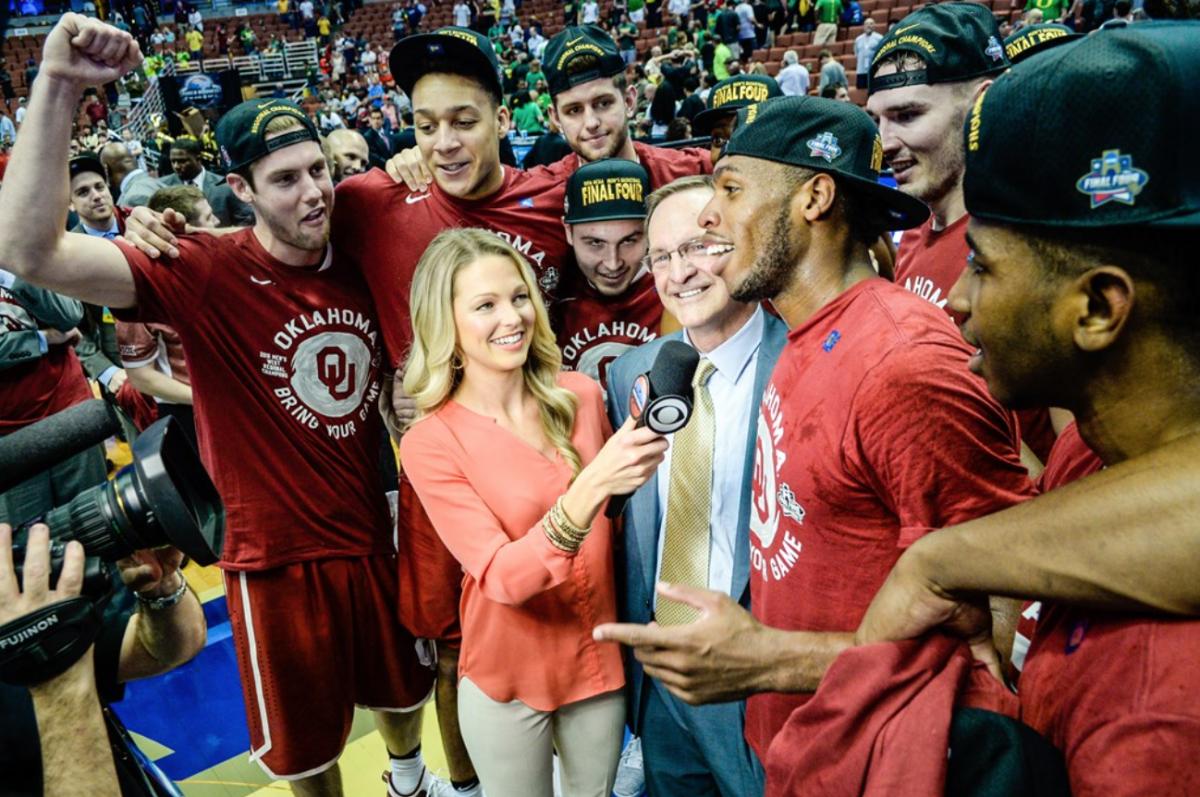
“So if you’re looking at quantifying someone’s career and trying to determine hall of fame, we know that’s what happened. But he is a hall of fame person.”
Kruger has spent his last 10 seasons on the sidelines for the Sooners, where he led OU to a 195-128 overall record, appearing in seven NCAA Tournaments and the 2016 Final Four. Overall, he finished with a .609 winning percentage, retiring with a record of 674-432.
Even in retirement, Kruger, sitting behind a microphone in front of an OU backdrop in his signature suit without a necktie, heaped all the credit on the players and those around him for his success at every stop.
“It comes always back to players,” Kruger said. “Players get it done. I think our function in all of that is just, whether you’re a parent or a business owner or a coach or a teacher, you know, is to create an environment, create a culture in which players love being around. If they’re in the office a lot, if they’re coming by practice early, if they’re staying late, you know they want to be around us. Then we’ve got a better chance to teach and to listen and to learn from them, and they’ve got a better chance then to realize their potential and do as well as they possibly can.”
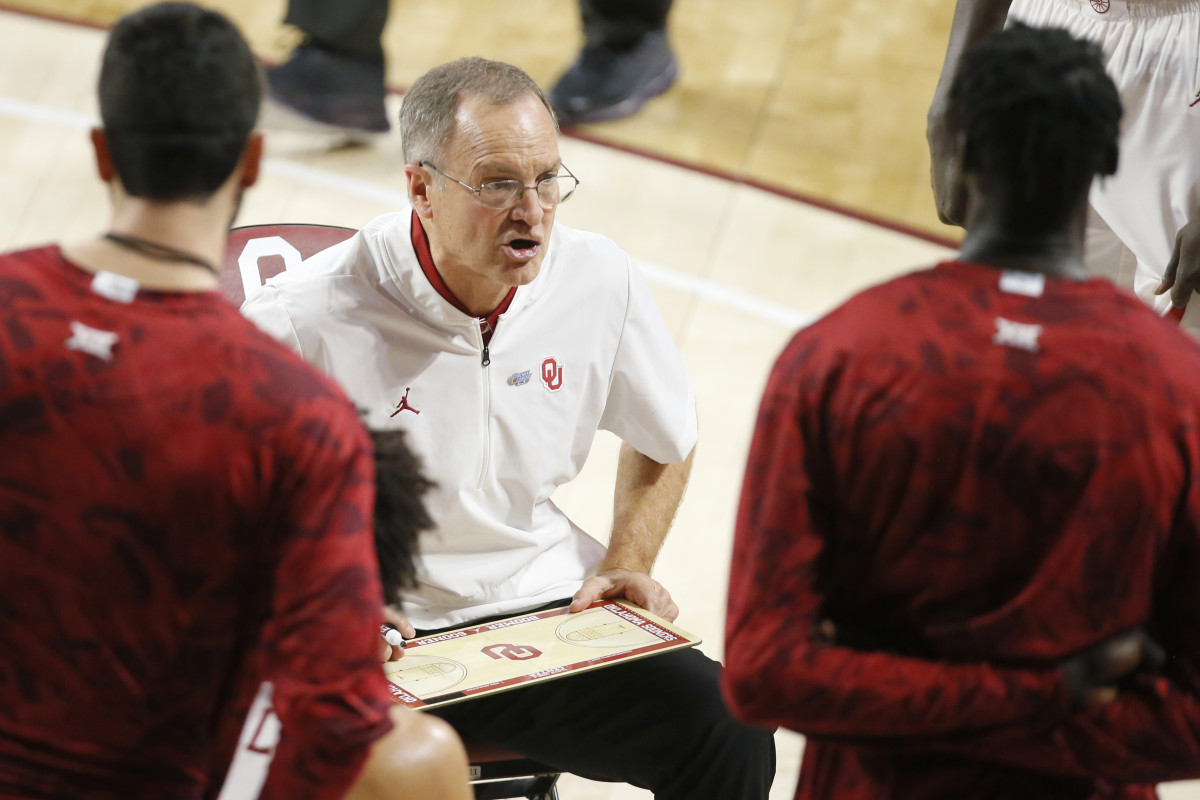
Kruger’s basketball career spanned nearly 50 years as both a player and a coach, and took him across the nation and around the world.
After lettering in baseball, basketball and football at Silver Lake High School, Kruger went on to star on the hardwood for the Kansas State Wildcats.
As a Wildcat, Kruger led the team to back-to-back Big Eight basketball championships in 1972 and 1973. In both 1973 and 1974, he was honored as the Player of the Year in the conference, averaging 17.6 points per game in his senior season.
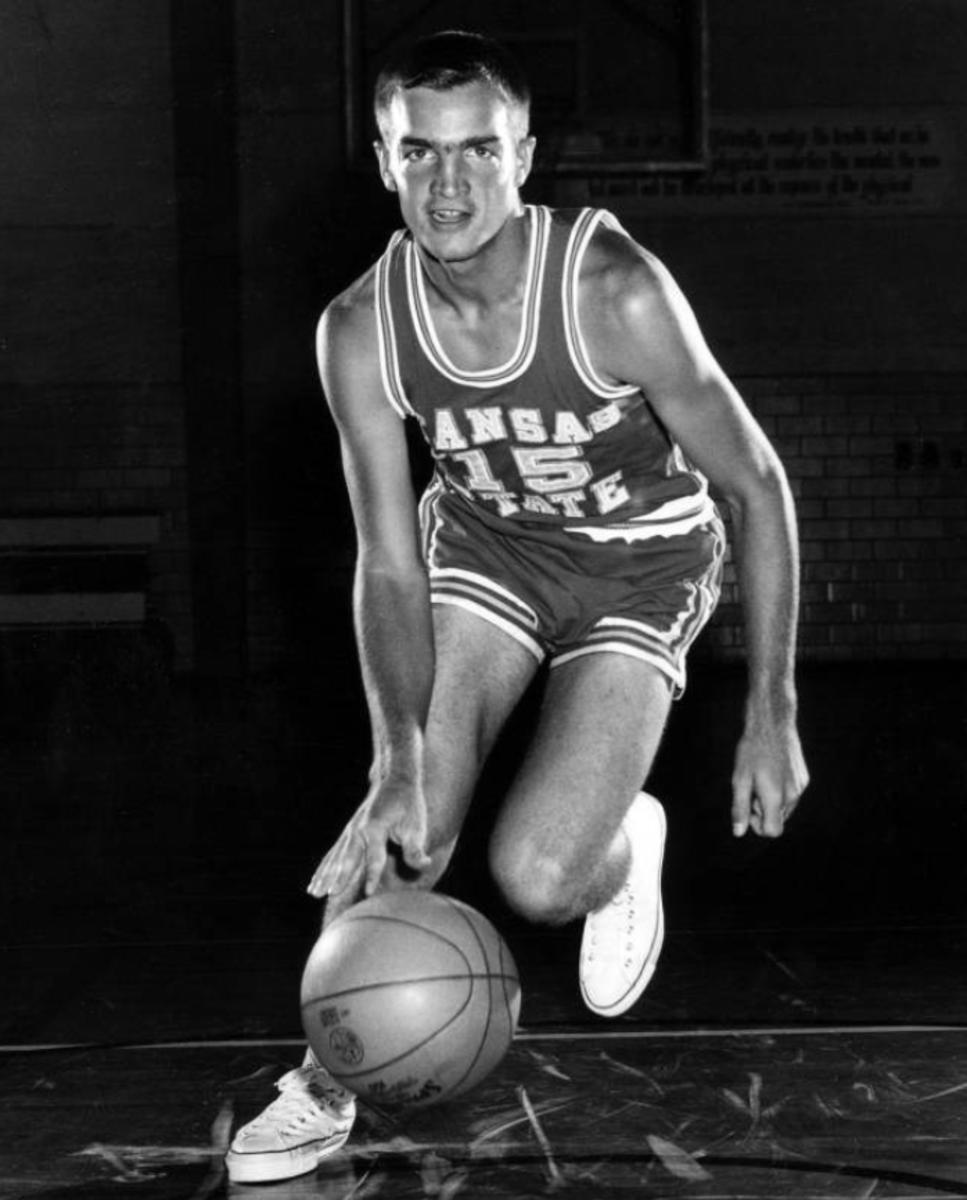
During his time at Oklahoma, Kruger said he’s often been reminded of the quality of people surrounding him and the program, as it was very similar to his upbringing in Kansas.
“We’ll always, we’ll operate between Norman. We love the people,” he said. “I told Joe (Castiglione) as we talked about this, growing up in Kansas and growing up in Oklahoma, not any difference in the type of people and the grass roots and the foundation of those people.”
Kruger was drafted by the Atlanta Hawks in the 1974 NBA Draft, but he would soon begin his coaching career, where he would become known for his ability to turn around the fortunes of programs for the better.
Logging stays at Texas Pan-American, Kansas State, Florida, Illinois, UNLV and Oklahoma, Kruger became the first coach in college basketball history to take five different programs to the NCAA Tournament while also reaching the Final Four with the Gators and the Sooners. The native Kansan guided all six programs to 20-win seasons, logging 17 such campaigns in total.
The transformations never seemed to take long, either. Before arriving at his six different head coaching stops, the programs combined to finish with a 78-99 recored. In his first seasons at each school, he totaled a record of 92-89, improving that mark to 117-72 by year two, where he led Kansas State, Florida, Illinois, UNLV and Oklahoma to either the NCAA Tournament or the NIT by the end of his second season.
Perhaps his most impressive coaching job came at Florida, where he inherited a program that had recorded a 7-21 record in the season prior to his arrival. Four short seasons later, Kruger was coaching in his first Final Four, capping off a 29-8 season with the Gators.
“Our goal was to be confidence-promoting all the time, never demeaning,” Kruger said. “There’s no shortcut for time in anything. You can talk about what you want to do, but really you’re identified with where you spend your time, not necessarily your money, but your time. And our players know that we’ve had great coaching staffs, people that are genuinely interested in the well-being of the student-athlete, not only on the court.
“Players recognize that, the staff being all in on what’s best for them, then I think you’ve got the best chance to realize as close to potential as possible.”
At Oklahoma, Kruger helped a pair of Sooners reach their full potential, as both Buddy Hield and Trae Young were selected in the top six of the NBA Draft.
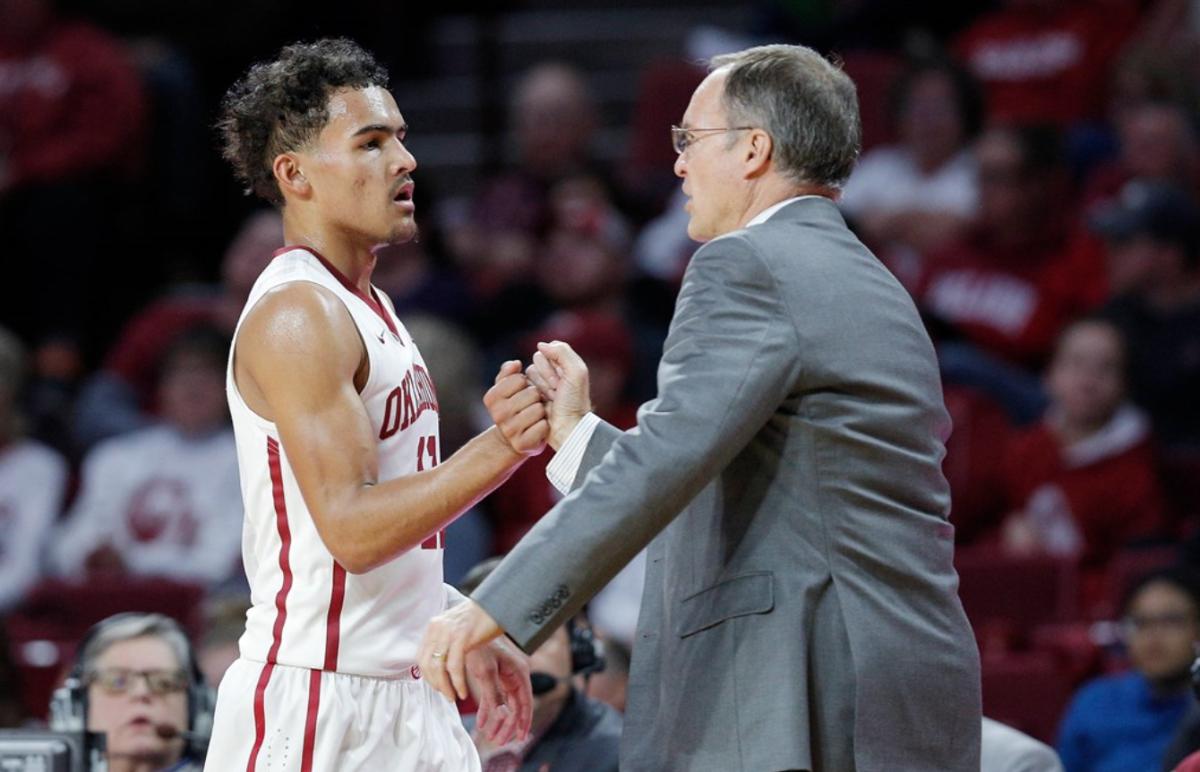
In the midst of his collegiate coaching success, Kruger returned to the Atlanta Hawks as the head coach in 2000.
Quickly, Kruger garnered a reputation for not just winning, but winning the “right way.” Treating both his players and staffs with great respect and care, he nurtured a family-centric environment both on the court, but off it and throughout his team’s facilities.
Kruger credited his convictions back to his upbringing and his parents, Betty and Don.
“Unbelievable parents, always about the right things,” he said, holding back tears. “The greatest thing my dad imparted was there’s no satisfaction in cheating and winning, I mean absolutely anyone can do that.”
Now, he can place his focus full-time on his family.
His son, Kevin, was named the head coach at UNLV on March 21, and Kruger said he and wife Barbara intend to enjoy spending plenty of time with their own kids, Kevin and daughter Angie, and their grandchildren.
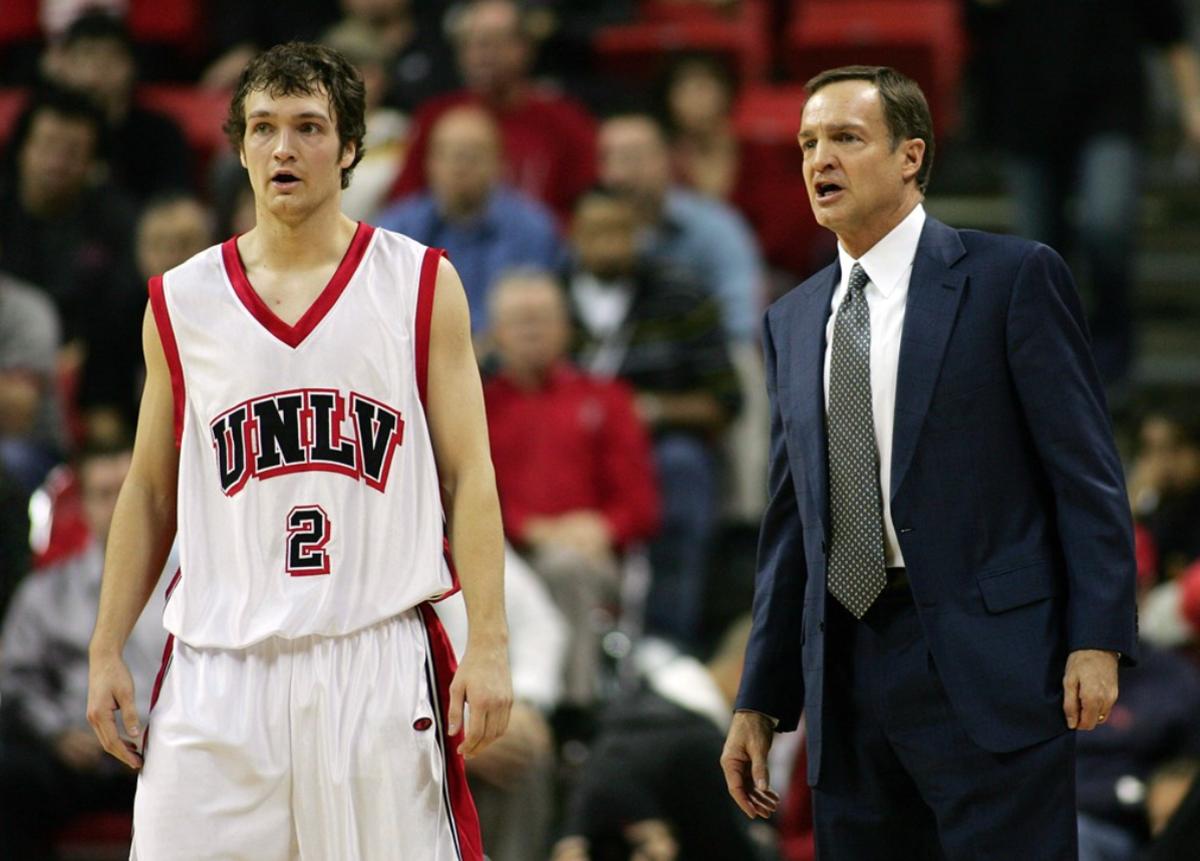
“We just feel like we’re missing something that we didn’t want to miss any more,” he said. “Mixed emotions of course. As much as we’ll miss, we’re really excited about where we’re at, and appreciative of all the folks who’ve been involved and really really fired up about what lie’s ahead.
“It’ll be great, and we’re looking forward to it.”
Leaving the team behind will be one of the more challenging aspect of his transition into retirement, he said.
“That’s the most difficult part, leaving guys that you’ve dealt with,” Kruger said. “I think the pandemic even created a different relationship because you’re leaning on each other so much. You’re depending on each other every day.”
The man renowned for building program after program now has another challenge to tackle: building on the retirement life with the rest of his family.
